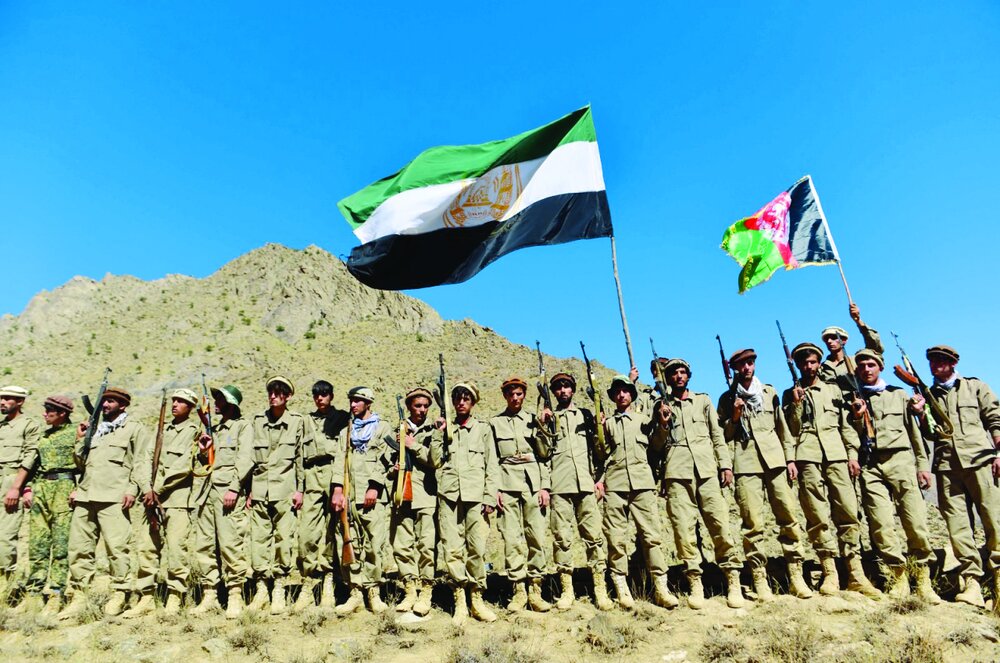EXCLUSIVE: Unraveling truth behind NRF failure in Panjshir: Ahmad Massoud had resorted to US militia

TEHRAN— An informed source confided to Tehran Times in exclusivity that Ahmad Massoud has met with Erik Prince, founder and head of the Blackwater private militia group in Dushanbe, Tajikistan.
Political pundits consider this the primary reason of the failure of the National Resistance Front in Afghanistan.
Blackwater is a privately owned American militia group that gained notoriety in 2007, when a gang of its employees killed 17 Iraqi citizens and injured 20 others in Baghdad's Nisour Square, for which four guards were imprisoned in the United States but later pardoned by former U.S. President Donald Trump on December 22, 2020.
On a contract basis, the organization provides security services to the federal government of the United States. The firm has been providing services to the CIA since 2003.
On Saturday, the state-run news agency Bakhtar revealed that Afghan security forces have discovered and seized a variety of weapons from eastern Panjshir province.
"Security forces of the Islamic Emirate of Afghanistan during several military operations have collected 74 rounds of different types of weapons in Abshar district of Panjshir province," the report said.
The seized weapons have been submitted to relevant organs, Xinhua reported quoting Bakhtar.
Panjshir, 200 kilometers north of Kabul, with Bazarak as its provincial seat, was the final region to witness isolated violent opposition to the Taliban-led administration following the Taliban's takeover of Afghanistan in mid-August.
Despite the Taliban-led caretaker government's capture of Panjshir in September, opponents led by former Vice President Amrullah Saleh and Ahmad Massoud, the son of veteran anti-Taliban leader Ahmad Shah Massoud, spoke of resistance in the valley province on occasion.
On Saturday, Amrullah Saleh, ousted Vice President of the previous Afghanistan regime and a supporter of the NRF welcomed the UN Credentials Committee move not to recognize Taliban’s nominee as Permanent representative in the global body.
“The Afghan seat in the UN stays with the legitimate and constitutionally mandated representatives of the Islamic Republic of Afghanistan,” tweeted Saleh.
He further wrote, “We applaud and welcome the decision of the UN’s Credentials Committee and see it as a step for healing the massive wounds inflicted upon the Afghan”.
The key United Nations panel has decided to defer its decision on requests by the Taliban caretaker administration in Afghanistan and Myanmar’s military junta to take their countries’ seats at the UN.
The permanent representative of the ‘democratically-elected’ erstwhile government of Afghanistan Ghulam Isaczai has received a sort of temporary reprieve.
“Resistance in various forms & ways continues throughout the country in which the Afghan women have been most vocal and in forefront. Talibs not only haven’t changed but have become more arrogant and brutal in dealing with wider Afghan society,” Saleh wrote in another tweet.
Saleh still calls himself Vice President of the Islamic Republic of Afghanistan.
By September 6-7, Saleh left Afghanistan and initially moved to Tajikistan.
Following the fall of Kabul on August 15, 2021, and after then-President Ashraf Ghani fled the nation, Saleh retreated to the Panjshir Valley. He declared the formation of the National Opposition Front in order to provide last-ditch resistance to the Taliban.
Both Kyaw and former Afghan regime nominee Ghulam Isaczai have requested accreditation ‘renewal.'
The committee's chairman, Sweden's Permanent Representative Anna Karin Enestrom, informed reporters that the committee decided to "defer its decision on the credentials" of the two countries.
Ghulam Isaczai, the ambassador of the old Afghan government, is being sought by the Taliban.
Mohammad Suhail Shaheen, a former Taliban spokesman, has been nominated to the UN Security Council by the new leadership.
In August, the Taliban took control of Afghanistan. Even Taliban-friendly countries such as China and Pakistan have yet to publicly recognize the Taliban authority in a diplomatic sense.
Leave a Comment